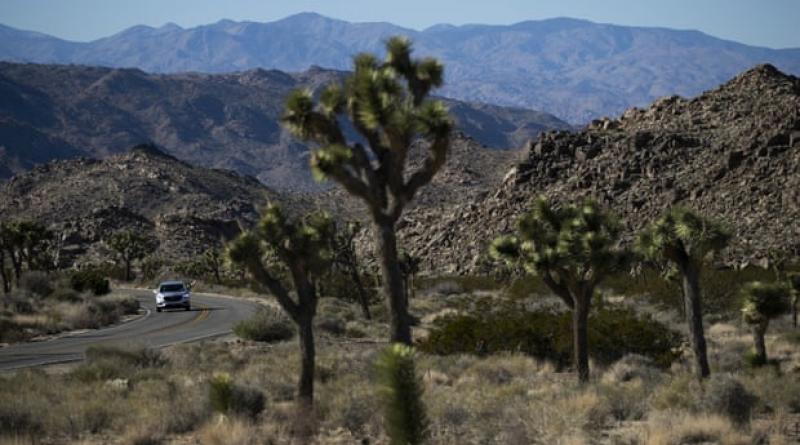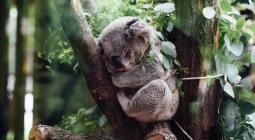California's Joshua tree could become first to win protections because of climate crisis.

The 2.5m-year-old tree would be first plant species protected by law in state as current habitat increasingly becomes less viable.
The western Joshua tree will be considered for protection under the California Endangered Species Act, possibly becoming the first plant species to be given protection of law in the state because of a primarily climate crisis-related threat.
The California Fish and Game Commission voted Tuesday to accept a petition that provides the gnarly-limbed yucca plants protected status for a year while the state conducts a study. The Joshua tree – which is not a tree but is actually a succulent called Yucca brevifolia – has graced the landscape of the Mojave desert for 2.5m years.
Research has shown that amid unmitigated climate change, only .02% of the tree’s current habitat in Joshua Tree national park would remain viable. Hotter and drier conditions – like the record-high temperatures that struck the state this summer – are killing off Joshua trees, and leaving fewer young to survive. Last month, the Dome fire burned burned through more than 43,000 acres in some of the world’s densest old-growth Joshua tree forest in the Mojave national preserve.
The vote made the tree a “candidate species”, meaning that for the year that the state studies and determines whether the trees should be given a “threatened” status, as the petition asks, the trees will be protected under the law, said Melissa Miller-Henson, the executive director of the California Fish and Game Commission. That means that it will no longer be legal to damage, remove or cut down a tree without a permit or special permissions.
“The intent is if a species is a candidate or protected, our goal is to protect it and in the long-term, find ways to help it recover,” Miller-Henson said.
Three years ago, another species was identified for protection under the California Endangered Species Act because of climate change – the American pika, a mid-altitude mountainous rodent, Miller-Henson said. “What they were finding was that this poor critter was having to go to different altitudes because of climate change,” she said. After the year study, however, the state determined that the rat was not at risk of becoming endangered.
Brendan Cummings, the conservation director for the Center for Biological Diversity and author of the petition, told the Guardian last month that he hoped that the Joshua Tree “can be a model of doing climate adaptation planning to ensure that biodiversity of the state is protected”.
“Right now, it’s a symbol of our utter failure as a society to address climate change,” Cummings said. “I’d like to think it can become a symbol of us coming together.”
Local government officials have opposed granting additional protections to the Joshua tree, saying that more restrictions will hinder real estate development and cause economic damage. The Yucca Valley mayor has repeatedly argued on social media that while he cares for Joshua trees, more protections would bring “red tape, cost and delays” for homeowners.
In the same meeting that accepted the protected status petition, the commission also voted to allow for the removal of Joshua trees at the sites of 15 solar energy projects planned in Kern and San Bernardino counties.
Miller-Henson explained that those projects would go forward under strict parameters, including a census on how many trees there were and the distance between each tree. “Because those projects are intended to address climate change, one of the threats to the Joshua tree, it didn’t seem necessary to stop those projects in their tracks,” she said.
-
This article was amended on 24 September 2020. An earlier version wrongly referred protections for the kangaroo rat rather than the American pika.
24 September 2020
The Guardian




